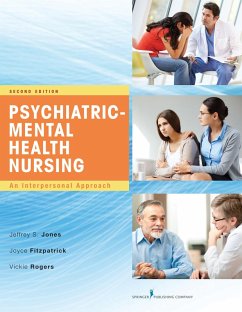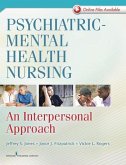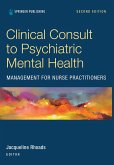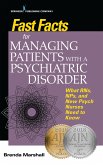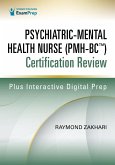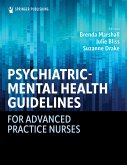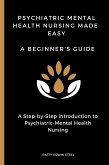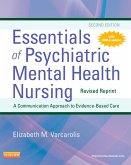Thoroughly updated to correlate with DSM-5 diagnostic descriptions and QSEN guidelines, the second edition of this highly acclaimed undergraduate psychiatric nursing text features concrete strategies for establishing interpersonal relationships as the basis not only for working with the psychiatric patient population, but as a timeless foundation for all nursing practice. The text guides students through the essential phases of self-discovery necessary to integrate interpersonal nursing theory into practice. Modules designed to foster growth in therapeutic use of self, including the importance of boundary management, are integrated with psychodynamic and current neurobiological theories to provide sturdy theoretical underpinnings for practice.
A wealth of descriptive psychiatric diagnoses of DSM-5, QSEN criteria, and NANDA-based care plans, case scenarios, evidence-based practice, patient and family education tips, drug summary lists, and complementary and alternative therapy approaches populate the text. The main body of the book focuses on common mental illnesses and weaves both the psychodynamic and neurobiological concepts into evidence-based strategies for nursing interventions. Additional features, such as examples of therapeutic dialogue and a Consumer Perspective featuring an actual consumer voice relating personal experience about living with a specific illness, provide further guidance in understanding and adopting a relationship-based approach to nursing. Web links facilitate quick access to additional information and NCLEX-style review questions prepare students for passing the NCLEX exam.
New to the Second Edition:
Key Features:
A wealth of descriptive psychiatric diagnoses of DSM-5, QSEN criteria, and NANDA-based care plans, case scenarios, evidence-based practice, patient and family education tips, drug summary lists, and complementary and alternative therapy approaches populate the text. The main body of the book focuses on common mental illnesses and weaves both the psychodynamic and neurobiological concepts into evidence-based strategies for nursing interventions. Additional features, such as examples of therapeutic dialogue and a Consumer Perspective featuring an actual consumer voice relating personal experience about living with a specific illness, provide further guidance in understanding and adopting a relationship-based approach to nursing. Web links facilitate quick access to additional information and NCLEX-style review questions prepare students for passing the NCLEX exam.
New to the Second Edition:
- Revisions correlate to DSM-5 descriptions, QSEN criteria, and NANDA nursing diagnoses
- Provides new information on psychopharmacology, compassion fatigue and a recovery model, use of informed consent, and cognitive behavioral therapy
- Presents updates on complementary and alternative interventions
- Includes expanded content on cultural and life span considerations related to mental health care worldwide
Key Features:
- Focuses on interpersonal relationships and boundary navigation as the foundation for practice
- Promotes psychodynamic and neurobiological perspectives within ISPN curricular guidelines
- Written by national and international experts in nursing education and psychiatric-mental heath practice
- Includes a digital student companion with key chapter concepts and critical thinking questions for practice situations
- Provides digital faculty resources including PowerPoint slides, an expanded test bank, case studies, and critical thinking exercises
Dieser Download kann aus rechtlichen Gründen nur mit Rechnungsadresse in A, D ausgeliefert werden.

